During the Oct. 23 coronavirus news briefing, Dr. Ngozi Ezike, director of Illinois Department of Public Health, was brought to tears as she delivered difficult news about the second surge of the pandemic, as reported by NBC Chicago.
According to the City of Chicago COVID-19 statistics, two out of three Chicagoans diagnosed with COVID-19 know the person who likely infected them, and three out of four of these close interactions took place at home.
The World Health Organization recommends cleaning your home regularly, particularly frequently touched surfaces like doorknobs and refrigerator handles. WHO also recommends avoiding crowded indoor settings; if you can’t, then take precautions like opening a window to increase the amount of ‘natural ventilation’ when indoors.
Columbia College Chicago students turned inside their homes to share how friends and family have been coping with the pandemic since it began in March.
Isabel Colado
_______________________________________________________
A teacher’s perspective
“The pandemic changed my life in the sense of where and how I work,” said Takreed AbuRabah, a 44-year-old from Oak Lawn, Illinois. “I am a teacher and I teach sixth grade. It is hard to teach sixth grade because kids are reaching a level of maturity in their adolescence where they start to rebel against the norm, and this made teaching from home difficult because the students were not being held accountable because there was nothing to contain them. They made decisions on their own, like not coming to the class or not doing assignments.”
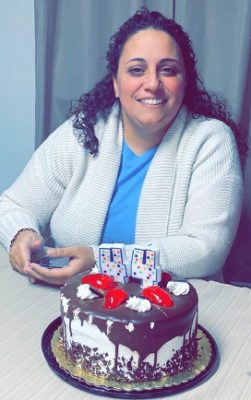
“I found it distracting being around my own family,” Takreed AbuRabah said. “Our house is smaller, so you can hear everything everyone else [is] doing. Being with two eighteen-year-olds along with a seven-year-old was difficult, and we all found it hard to find our own space.”
| Sam AbuRabah
“There were some positives, like spending more time with my family and catching up on hobbies, like watching TV and teaching my son baseball,” AbuRabah said. “I also found more time to make home-cooked meals, which saved us money and brought us closer as a family. I found more activities to do with my children, like painting the walls, playing games and helping them with their work. I wanted to show my children that I was there for them, and this pandemic really allowed me to find ways to be with them. We found many ways to make a sad situation fun, which is why I would describe it as bittersweet.”
By Sam AbuRabah
_______________________________________________________
Being prepared wasn’t possible
“I feel like out of nowhere we all got cut off from our family and friends,” said Dayline Ramirez, a 17-year-old from Chicago. “All of it has been really hard, especially for my parents. Seeing them struggle a lot, and feeling like I can’t really do much about it sucks. My sister just had her baby two months ago and sometimes I take care of her when she’s not home, sometimes it’s during my classes.”
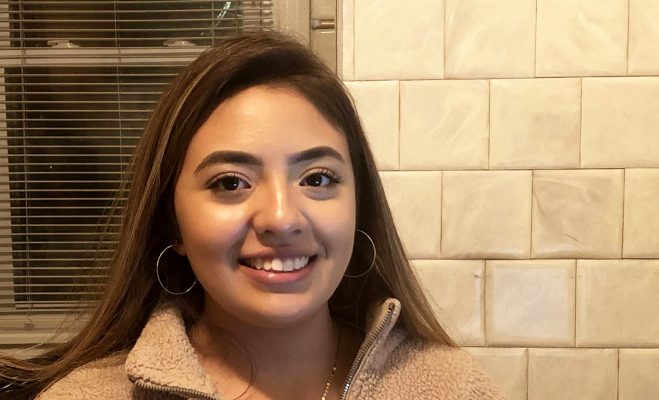
“Well, I mean it’s high school; it’s Chicago Public School,” Dayline Ramirez said. “How were they ever going to be prepared for a global pandemic? It’s all just crazy to me, how they really expect so much from us.”
| Irvin Ibarra
“It’s a lot to handle and I know people in my class that have it even worse,” Ramirez said. “The teachers tend to talk a lot about what is going on in the world, stuff in the news when it happens. I clock out when they do ‘cause it gives me a headache. It’s like the simple stuff that I started missing. I really miss the days where I could just randomly go out with some friends to get food or to just hang out and chill. The days where I didn’t have to think about getting my hand sanitizer or my face mask to stay safe. I already carry pepper spray with me, and now this is on top of that.”
By Irvin Ibarra
_______________________________________________________
The self-employed experience
“I’ve been fortunate enough as a self-employed person to not have been impacted by job loss,” said Jeborrah Perkins, a 45-year-old from Tinley Park, Illinois. “Insurance is something that people will always need, so I haven’t been impacted that way. The shutdown and then the slow reopening of some parts of society has been a lot to take [in]. I’m working from home now more than I am going into the office. It has, on a positive note, helped me relax a bit more and enjoy the things around me more than I did before when I was always rushing to get to the office, rushing to get to the next appointment and then rushing to get back home.”
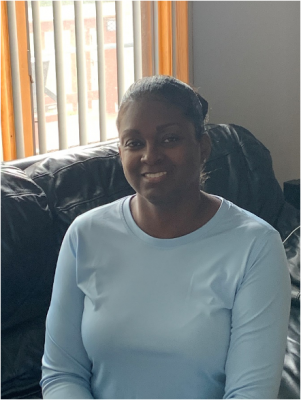
“I would say it was hard being around people again,” Jeborrah Perkins said. “I, at one point, had some anxiety about going out and being around people again this summer. Thankfully, that anxiety and that fear subsided a bit. I wear my mask everywhere, I go and maintain appropriate social distancing.”
| Jordan Perkins
“This pandemic has shown me that the world is a much meaner, more selfish place than I thought it was,” Perkins said. “Something as simple as putting on a mask when you’re out just in case you may be a spreader or just in case it may be helpful to someone else and to see so many people not be willing to do that has been hurtful for me.”
By Jordan Perkins
_______________________________________________________
Paused performer
“The hardest adjustment through the pandemic has been the schooling,” said Georgia Moore, an 18-year-old Columbia College student from Littleton, Colorado. “That doesn’t really necessarily have to do with COVID, but also, in general, doing Zoom classes, which are tough, and Zoom performances; which is always strange because I’m doing improv over zoom and it’s really cringy and weird. Also, trying to make people laugh over Zoom is always awkward, and then the transition from high school to college has been big; so it’s been a very transitional year for me in general. [Where I’m from], it’s a typical suburbia high school neighborhood.”
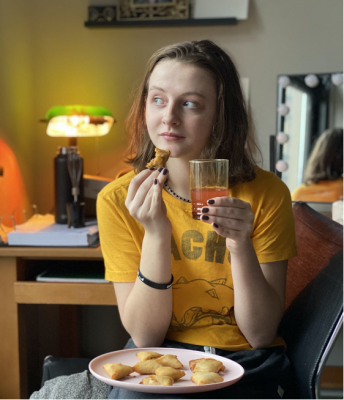
“When I was in high school, I did a lot of theater things; so a lot of live performances with audiences, but I never got to finish it because then the pandemic happened,” Georgia Moore said. “I do definitely miss doing things though like performing live… I can’t wait to finally get back into performances.”
| Tanner Snetzer
“When quarantine first started, it helped me get close to my mom because I had to spend a lot of time with her, which was really nice,” Moore said. “The pandemic has definitely made me open my eyes to problems within government, and capitalism, and issues that I already take within that. It’s just more so reinforcing the ideas that I already thought. But I am honestly just trying to have a positive attitude about the whole situation, trying to force optimism onto myself, which works about 45% of the time.”
By Tanner Snetzer

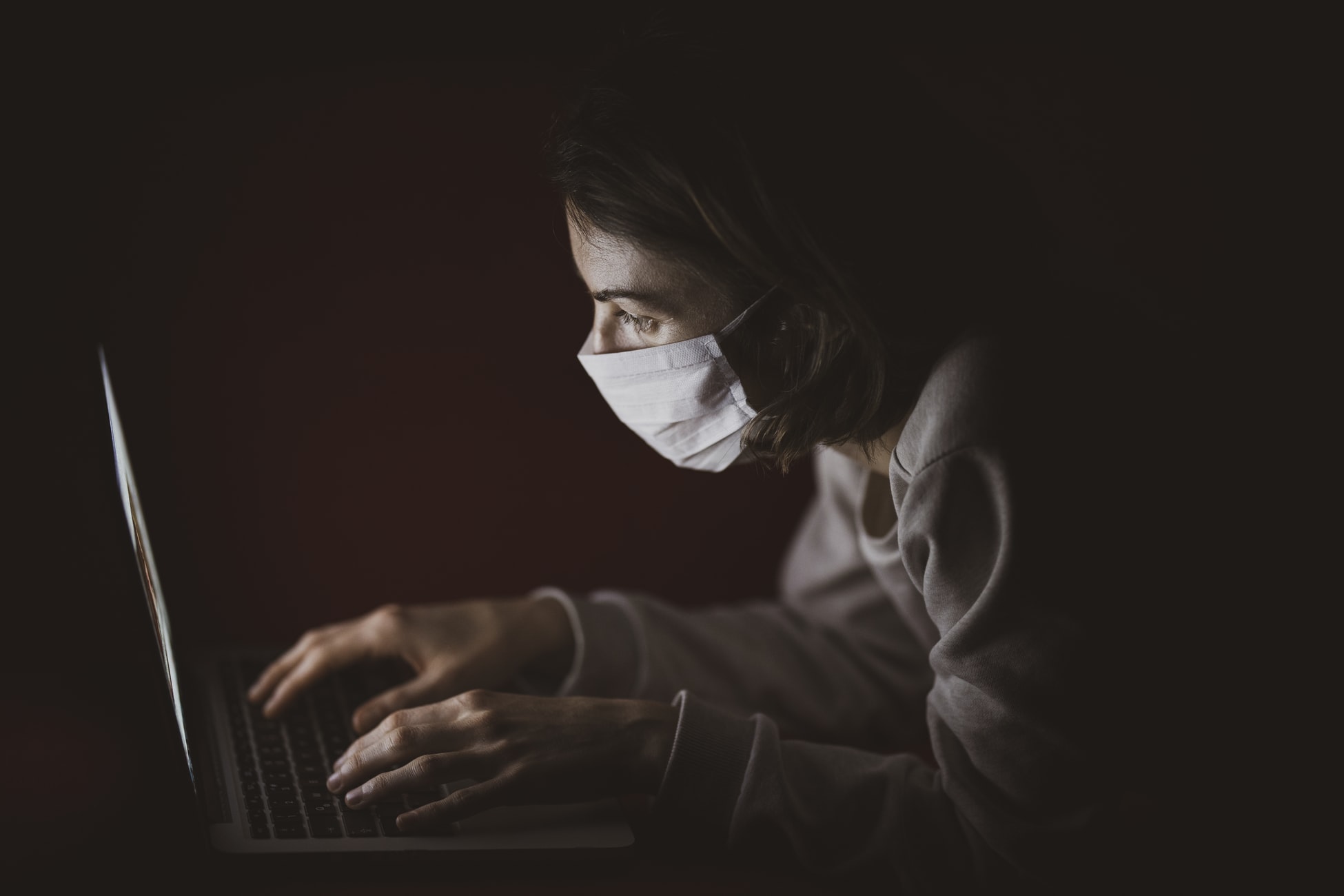
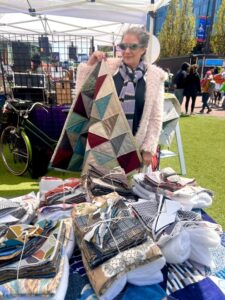
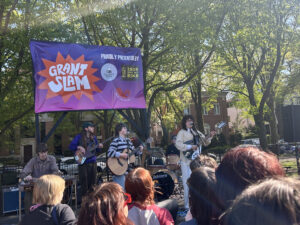

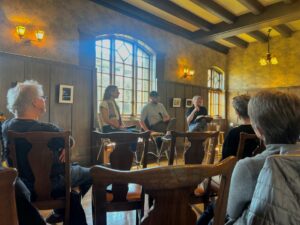
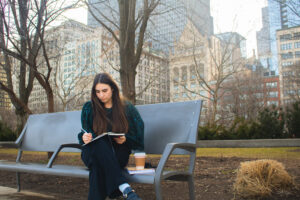
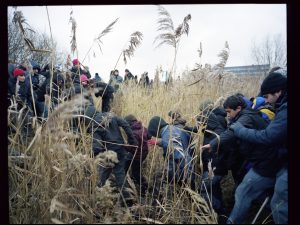

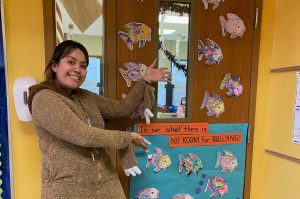
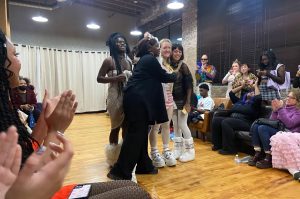
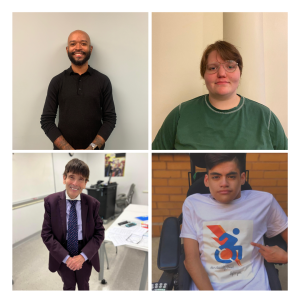
Be First to Comment